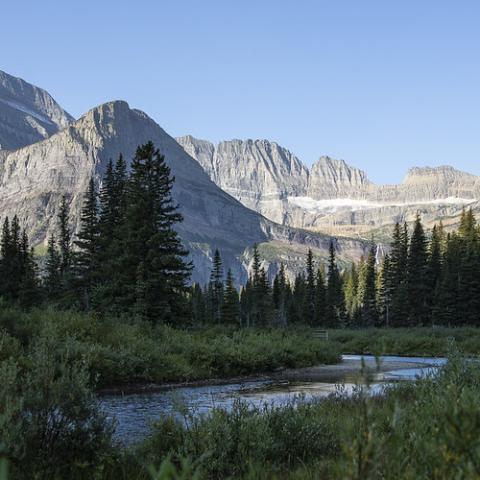
A dead bald eagle found in Glacier National Park died of lead poisoning/NPS file
A dead bald eagle found in Glacier National Park in Montana died from lead poisoning, though how it ingested the metal was not immediately known.
Park biologists sent the carcass, which was found near Lower McDonald Creek back in February, to the National Wildlife Health Center in Madison, Wisconsin, for further evaluation after an initial assessment did not show evidence of gunshot or other obvious signs of trauma.
Bald eagles are protected by the 1940 Bald and Golden Eagle Protection Act, which prohibits poisoning them, among a number of other activities.
This is not the first eagle found in the West Glacier area that died from lead poisoning. In April 2012, park staff found a sub-adult golden eagle carcass in the same vicinity. A necropsy also determined that lead poisoning was the cause of death. A similar case was recently discovered in Yellowstone National Park.
The necropsy for this bald eagle found the immature female bald eagle to be emaciated, a park release said. The eagle’s gall bladder was distended and filled with viscous, green bile, which is typical in birds killed by lead poisoning.
Lead is a naturally occurring heavy metal that has been used by humans for many purposes for thousands of years. It has also been used in the manufacturing of lead fishing sinkers and hunting ammunition. Although both lead fishing tackle and hunting are not permitted in Glacier, eagles do not spend their entire lives within the park boundaries and can be exposed to lead outside of the park.
Eagles are top avian predators, but they are also scavengers. Eagles will feed on dead rodents left in fields or pastures after being shot, and on guts piles left by hunters in the fall. If the hunter used lead ammunition, small lead bullet fragments are usually present in the carcass. Non-lead ammunition is safer for wildlife, the park release said, adding that hunters who choose to use lead ammunition can reduce impacts to wildlife by removing gut piles from the field and disposing of them in plastic garbage bags.
When an eagle feeds on enough of these carcasses or gut piles, lead can accumulate in the bird’s body in a process called bioaccumulation. High lead levels can cause significant damage to the eagle’s brain and nervous system, making it difficult for them to hunt and eat. Eagles suffering from lead poisoning are often emaciated, because of their inability to hunt, and end up dying.
If you see sick or injured wildlife, or animals acting strangely, please report them to a park employee and take photos or video from a safe distance if possible. Never approach or attempt to capture the wildlife yourself.




 Support Essential Coverage of Essential Places
Support Essential Coverage of Essential Places







Add comment